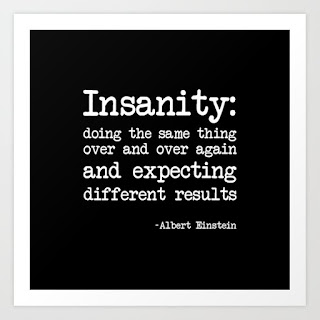The question was: how are these vaccines different than other vaccines kids get before going to school?
Here are three answers:
1) Mechanism of action: the mRNA vaccines do not look or work like almost all other vaccines, which are far simpler biologically.
Most vaccines present an inactivated or attenuated viral particle to the immune system so that it can react to the "dead" virus as it would to the live virus. The mRNA and DNA/AAV vaccines instead hijack our own cells and cause them to make a piece of the Sars-Cov-2 virus to jumpstart our immune system.
It is now clear that this process carries significant risks - and more importantly, does not lead to the breadth or longevity of immune system response as normal infection with Sars-Cov-2.
“While vaccination gives rise to memory B cells that evolve over a few weeks, natural infection births memory B cells that continue to evolve over several months, producing highly potent antibodies adept at eliminating even viral variants.
The findings highlight an advantage bestowed by natural infection rather than vaccination.”
2) Duration of protection: the Covid vaccines protect for only a few months at most; other childhood vaccines, with the exception of the flu vaccine, protect for decades or a lifetime.
This difference is especially important for children, who might have to take boosters for decades (or at least until we regain our sanity, if we ever do). Further, natural immunity to the original SARS appears to last for decades - we don't know yet if that is true of SARS-COV-2, but if it is the vaccines are an even worse bet.
3) Side effect profile: the COVID-19 vaccines have moderate to serious short-term side effects for an enormous number of people who receive them, far more than the flu vaccine or other common childhood vaccines.
They also cause medically significant heart inflammation in as many as 1 in 3,000 to 1 in 5,000 teenage boys who receive them. Given that Covid itself is little more than a cold for almost all healthy children and teens, the vaccines have a risk-benefit profile that is unacceptable for teenagers, much less children.
This is why many countries have not recommended them for people under 16. This is the current WHO recommendation for children and adolescents. They have rewritten it under political pressure, but if you read it carefully, you will see that they say children 12-15 "may be offered this vaccine" ONLY if they "are at higher risk of severe COVID-19." Basically, that means the morbidly obese and kids with severe immune deficiencies, cancer, etc.:
Vaccines are usually tested in adults first, and only later assessed in children when safety has been proven in adults, because children are still developing and growing. COVID-19 has also been a more serious and dangerous disease among older people. Now that the vaccines have been determined to be safe for adults, they are being studied in children.
WHO's Strategic Advisory Group of Experts (SAGE) has concluded that the Pfizer/BionTech vaccine is suitable for use by people aged 12 years and above. Children aged between 12 and 15 who are at higher risk of severe COVID-19 [emphasis added] may be offered this vaccine alongside other priority groups for vaccination. Vaccine trials for children are ongoing and WHO will update its recommendations when the evidence or epidemiological situation justifies a change in policy.











